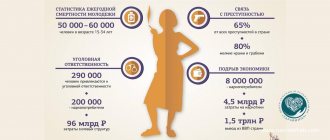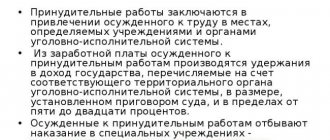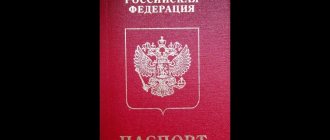Arrest in criminal proceedings
When a criminal case is initiated against a person suspected of committing a crime, the investigative authorities and the prosecutor have the opportunity to initiate a seizure of property. This can be done as part of pre-trial proceedings in order to prevent the concealment or alienation of property. Also, such a procedure is allowed to secure claims in a civil lawsuit related to the consequences of committing a crime. The court in a criminal case may choose confiscation of property as a punishment, then in order to enforce the decision, this property is seized.
As part of pre-trial proceedings, arrests are carried out by investigative and inquiry bodies; in other cases, this responsibility is assigned to bailiffs.
Comment on the applicable article
In order to more competently understand the application of the article to it, leading experts in criminal law give comments that help to more thoroughly understand the meaning of the law.
The Constitutional Court separately explains Part 1 of Art. 115 of the Criminal Procedure Code. He explains that the seizure of property does not imply the complete removal of things from the use of the culprit. According to the law, the owner is limited only in the rights to alienate property. He can lose it completely if he is found guilty and he cannot pay off the resulting cost of the claim voluntarily and independently within the period established by law.
Essentially, the solution to the issue could be like this:
- The defendant is found guilty and loses his property if the required amounts are not paid.
- The defendant is found guilty, and he is not deprived of property, having voluntarily compensated for the damage.
- The person and property are acquitted, as well as everything seized is returned, and the prohibitions are lifted.
It is also worth explaining Part 3 of this law of the Russian Federation, since it involves imposing a ban on actions with property on other people.
It is worth noting that such a decision may arise if, upon checking the case materials, it was discovered that the loss caused was spent, at the direction of the culprit, on the acquisition of property. In such situations, it is possible to apply this law to other persons, even if they were not aware of such a situation.
For such persons, the abolition of this restriction is possible only if they, independently or with the help of the justice authorities, prove that the things were not acquired with criminal means. If this fact is proven, the problem will be solved. However, you will have to endure some inconveniences associated with the prohibition of registration actions.
Seizure of the debtor's property
Failure to fulfill an obligation confirmed by a court decision leads to its forced execution. This task is performed by bailiffs as part of enforcement proceedings. To do this, the bailiff just needs to have a writ of execution to collect an amount exceeding three thousand rubles. The purpose of the arrest is:
- ensuring the safety of property;
- execution of the act of confiscation of property;
- execution of the act of seizure.
The procedure itself for seizing property occurs without fail with the invitation of witnesses, and ends with the drawing up of an act. Violation of the rules established by law is grounds for challenging the actions of the bailiff. To do this effectively, you need to hire a lawyer who knows all the intricacies of enforcement proceedings.
Are stolen funds considered evidence?
To find ways to resolve the described problem, it is also necessary to understand whether these funds stolen from the Company can be material evidence in a criminal case.
Let us turn again to the Code of Criminal Procedure of the Russian Federation.
Thus, the definition of material evidence, as well as the procedure for recognizing objects as such, is enshrined in Article 81 of the Code of Criminal Procedure of the Russian Federation.
As follows from the analysis of this article of the Code of Criminal Procedure of the Russian Federation, funds in a bank account are not physical objects, do not have any identification marks or physical properties, and, as a result, cannot be recognized as material evidence in a criminal case. In contrast, for example, to cash in banknotes or currency, which can be recognized as material evidence in a criminal case in accordance with the procedure established by Article 81 of the Code of Criminal Procedure of the Russian Federation.
Law enforcement officials also adhere to the point of view described above when carrying out a preliminary investigation, and therefore non-cash funds in bank accounts are never recognized as material evidence.
Thus, the above legal norms relating to the seizure of property and funds are applied in this case without taking into account the provisions regulating the issues of recognition, recording and storage of material evidence in a criminal case.
All of the above has a significant role in the question of how to return stolen funds to their rightful owner before the criminal case is resolved on its merits.
Seizure of property for non-payment of taxes
If a taxpayer violates his obligations to the budget, the tax service has the right to initiate seizure of property. This method of securing obligations is possible only if there are no funds in the debtor’s bank account. The Tax Code provides for a sequence: first, the debt is covered by funds, and then the missing part is covered by movable and immovable property.
Tax authorities often make mistakes even at the stage of forming the amount of debt. Therefore, it may turn out that several decisions of the tax authorities will have to be challenged at once, including those on seizure. To build a rational line of defense, it makes sense to hire a lawyer and instruct him to prove the decision of the tax service was erroneous.
Seizure of a current account is an “invention” of the investigative and judicial authorities
The topic of this article is touched upon due to the fact that recently the bodies of inquiry and investigation (hereinafter referred to as the “investigation”) have been using a tool to seize the current account of a legal entity when investigating economic crimes.
I present this information to the judgment of my colleagues, since in my practice there is not a single case in which the courts have canceled their decision to seize a current account. I would like to share my opinion and learn about the experience of my colleagues - whether we are resolving this issue in the legal field.
Today, judicial practice proceeds from the fact that when investigating a criminal case under the “economic” article, the investigative authorities file a petition with the district court with a demand to seize the bank account of not only the suspect, but also, most often, third parties (who subsequently receive the procedural status of a witness) who are counterparties of the suspected person, that is, persons (legal or individual entrepreneurs) who at some time during their time had the imprudence to make a payment or receive payments from the suspect.
Without exception, the courts cooperate with law enforcement officers and seize the bank accounts of persons according to the list included in the petition. At the same time, such a list is formed by law enforcement officers by including in it the names and TIN of persons from the suspect’s payment registers. In my case, the principal's company was one of forty companies whose accounts were frozen under one court order.
Thus, it turns out that one “fine” day, unaware of the “surprise” awaiting him, the director of a legal entity receives a refusal to execute a payment order at the servicing bank, and upon arriving at the bank he receives a district court decision to seize the current account within the framework of a criminal case initiated against a third party. As well as an oral proposal from a bank specialist or bank security service to seek clarification from the investigative authorities. Already during personal communication with the investigative authorities, the director is confronted with the fact of his new status - a witness in a criminal case.
It was precisely such a case that forced the director of a legal entity to turn to me for help.
General Director P. at the servicing bank received information that the account was blocked in pursuance of the district court's decision to seize the current account.
Seizure of a current account in the understanding of the investigative authorities and the court means:
- suspension of all debit transactions on the seized account,
- suspension of expense transactions for an indefinite period of time (until the arrest is lifted),
- suspension of debit transactions for all amounts already in the account and coming to the account in the future.
Having received an offer to telephone the investigator, P. was informed of the criminal case initiated under Article 172 of the Criminal Code of the Russian Federation “Illegal banking activities” and was summoned (or, in a simple way, verbally invited by telephone) for questioning at the Department of Economic Safety and Practical Affairs of the Ministry of Internal Affairs of Russia in the St. Petersburg, where he was interrogated as a witness regarding his relationship with the suspect (company X).
At the same time, during the interrogation of P., it was not explained what the essence of the claims against the company he headed was and what was the reason for the arrest of his (legal entity) current account.
At the same time, I will make a reservation right away that P. was neither a suspect nor an accused in the criminal case, he was not presented with documents or facts indicating that he had committed, independently or with the use of his legal entity, any illegal actions falling under criminal law, including that the money in the company’s bank account was obtained as a result of criminal acts, or was used or intended to be used as a weapon, equipment or other means of committing a crime, or for the financing of terrorism, extremist activity (extremism), an organized group, illegal armed formation, criminal community (criminal organization).
The director submitted a petition to the Investigative Directorate of the Ministry of Internal Affairs of Russia for the region of St. Petersburg, where the criminal case is pending, to cancel the decision to seize the company's current account and to remove the seizure from the bank's current account.
However, the company received a response from the Investigative Directorate of the Ministry of Internal Affairs of Russia for the St. Petersburg region with a refusal to satisfy the application.
The company, considering this refusal illegal and unfounded, filed a complaint in accordance with Art. 124 of the Code of Criminal Procedure of the Russian Federation to the Prosecutor's Office of the District of St. Petersburg.
A response was received from the St. Petersburg District Prosecutor's Office, which rejected the complaint, since the actions of the investigation were lawful.
In its letter, the St. Petersburg District Prosecutor's Office referred to the legal grounds for seizing the company's account on the basis of the Resolution of the St. Petersburg District Court on the seizure based on a petition from the investigator of the Investigative Directorate of the Ministry of Internal Affairs of Russia for the St. Petersburg region and to the fact that the preliminary investigation of the criminal case was continuing.
Having considered that these arguments of the Prosecutor's Office do not justify the legality of the actions (inactions) of the investigator of the Investigative Directorate of the Ministry of Internal Affairs of Russia for the St. Petersburg region related to the refusal to satisfy the stated request to remove the seizure from the account, the company was forced to go to court in accordance with Art. 125 Code of Criminal Procedure of the Russian Federation.
I will say right away that the city court, by an appeal ruling, changed the district court’s decision to seize the current account, considering that the seizure was not valid indefinitely, but until the end of the preliminary investigation, while the seizure of the current account itself remained in force without indicating (not specifying) the limits of the amount per which has been arrested.
In my opinion, such actions of the investigative authorities, supported by the authority of the judiciary and with the inaction of the prosecutor’s office, do not contain any legal basis, as follows from the brief analysis of the current legislation below.
At the same time, I would like to immediately make a reservation that the current legislation does not know such a thing as “seizure of a current account” - this is an “invention” of the tandem of the investigative authorities and the court, and is actively used in practice.
The legislation contains such concepts as “seizure of funds in a bank account” and “suspension of expenditure transactions on bank accounts.”
Therefore, I will briefly dwell on the instructions of the authorized bodies on whose initiative debit transactions on bank accounts are suspended and I will talk about the grounds for seizing funds in a bank account.
As we know from the current legislation, both the seizure of funds in a bank account and the suspension of debit transactions on bank accounts are, as a rule, interim measures designed to ensure that the debtor fulfills certain requirements established by law and/or court.
For example, the suspension of debit transactions on bank accounts is not a one-time action of the authorized body - it is usually preceded by a violation of the law by the debtor, the issuance of demands to the debtor by regulatory authorities to eliminate the violation, and litigation.
As I already said, seizure of a bank account in the generally accepted sense means:
- suspension of transactions on a bank account;
- seizure of funds in a bank account.
the following have the right to limit the rights of an organization or individual entrepreneur to use funds in their bank accounts by suspending transactions on bank accounts
1. Tax authorities in accordance with paragraph 5 of Article 31 and Article 76 of the Tax Code of the Russian Federation, in the following cases:
- the requirement to pay taxes, penalties or fines has not been fulfilled;
- the tax return is not submitted within 10 working days after the deadline established for its filing;
- ensuring the execution of the decision of the tax authority based on the results of the audit on the payment of taxes, penalties, and fines.
2. Customs authorities in accordance with Article 155 of the Federal Law of November 27, 2010 No. 311-FZ “On Customs Regulation in the Russian Federation”, as well as Article 34 of the Tax Code of the Russian Federation.
3. Federal Service for Financial Monitoring in accordance with Article 8 of the Federal Law of August 7, 2001 No. 115-FZ “On Combating the Legalization (Laundering) of Proceeds from Crime and the Financing of Terrorism”, in the following cases:
- if a transaction is carried out on the current account with the participation of an organization or individual in relation to which there is information about their involvement in extremist activities or terrorism;
- if an operation is carried out on the current account of legal entities that are directly or indirectly owned or controlled by organizations or persons involved in extremist activities and terrorism;
- if an operation is carried out on a current account by legal entities or individuals acting on behalf of or at the direction of an organization or persons involved in extremist activities or terrorism.
But the following can seize funds in the bank:
4. Courts and arbitration courts, preliminary investigation bodies in the presence of a court decision in accordance with Article 27 of the Federal Law “On Banks and Banking Activities”, according to which funds and other valuables of legal entities and individuals located in accounts and deposits or on storage in a credit institution, as well as the balance of electronic funds, can be seized only by a court and arbitration court, a judge, as well as by order of the preliminary investigation authorities in the presence of a court decision.
When seizing funds in accounts and deposits, or the balance of electronic money, the credit institution, immediately upon receipt of the decision to seize, stops debit transactions on this account (deposit), as well as transfers of electronic money within the amount of the balance of electronic funds. funds that have been seized.
5. Bailiffs in accordance with Article 81 of the Federal Law of October 2, 2007 No. 229-FZ “On Enforcement Proceedings”.
As can be seen from the text of these articles, the basis described in paragraph 4 applies to our situation, that is, the seizure of funds in the presence of a court decision, since in all other cases there is a suspension of transactions on bank accounts.
I would like to remind you that when the court makes a decision, it must be legal and justified (Part 1 of Article 195 of the Code of Civil Procedure of the Russian Federation). At the same time, a decision is legal in the case when it is made in strict compliance with the norms of procedural law and in full compliance with the norms of substantive law that are subject to application to a given legal relationship, or is based on the application, if necessary, of an analogy of law or an analogy of law (part 1 Article 1, Part 3, Article 11 of the Code of Civil Procedure of the Russian Federation).
Here we come to the essence of our question.
Clause 1 of Art. 115 of the Code of Criminal Procedure of the Russian Federation establishes an exhaustive list of grounds for seizure of property of persons (including funds) specified in this article.
Such grounds are:
- ensuring the execution of a sentence in relation to a civil claim,
- collection of a fine,
- other property penalties or possible confiscation of property.
At the same time, this article also defines a list of persons whose property may be seized:
- suspect
- the accused
- persons who are legally liable for their actions.
The purpose of arrests and other restrictions on property applied within the framework of criminal proceedings is to prevent the sale of the property of the debtor (suspect, accused), registration of the transfer of the right to the sold property, which makes it impossible to manage funds in the debtor’s bank accounts, and close these accounts.
A seizure of property is imposed if there are general conditions for the action of procedural coercive measures provided for in Articles 97 and 111 of the Code of Criminal Procedure of the Russian Federation, namely:
The inquirer, investigator, as well as the court, within the powers granted to them, have the right to choose for the accused, suspect one of the preventive measures provided for by this Code (Code of Criminal Procedure of the Russian Federation), if there are sufficient grounds to believe that the accused, suspect:
1) will hide from the inquiry, preliminary investigation or trial;
2) may continue to engage in criminal activity;
3) may threaten a witness, other participants in criminal proceedings, destroy evidence or otherwise obstruct the proceedings in a criminal case.
And
In order to ensure the procedure for criminal proceedings established by the Criminal Procedure Code and the proper execution of the sentence, the inquirer, investigator or court has the right to apply the following measures of procedural coercion to the suspect or accused:
4) seizure of property.
At the same time, paragraph 3 of Art. 115 of the Code of Criminal Procedure of the Russian Federation provides the right to seize property owned by other persons.
However, such an arrest is possible only if there are sufficient grounds, which include:
- property was obtained as a result of criminal actions of the suspect, accused,
- the property was used or intended to be used as a weapon, equipment or other means of committing a crime,
- the property was used to finance terrorism, extremist activities (extremism), an organized group, an illegal armed group, a criminal community (criminal organization).
That is, as follows from the provisions of the criminal procedural legislation, seizure of property is allowed only if one or more special conditions are met:
- it was established that property or moral damage was caused by a crime, a civil claim was filed (Article 44 of the Code of Criminal Procedure). In the absence of a civil claim, its security should not be applied, since the right to bring a claim is dispositive,
- it is actually possible to impose punishment in the form of confiscation of property, that is, a person is reasonably accused (suspected) of committing an intentional crime for mercenary reasons, for which a punishment of over 5 years of imprisonment is threatened (part 4 of article 15, article 52 of the Criminal Code of the Russian Federation). At the same time, the corresponding article of the special part of the Criminal Code of the Russian Federation provides for additional punishment in the form of confiscation of property,
- the amount of legal costs incurred has been established, which can actually be imposed on the accused (Articles 131-132 of the Code of Criminal Procedure). A monetary penalty was imposed on the legal representatives of the accused (suspect) in accordance with Articles 117-118 of the Code of Criminal Procedure,
- property was obtained by criminal means (intended or used to commit a crime) and transferred to “another person.”
That is, the basis for seizing property is a reasonable assumption that the property to be seized can be hidden or alienated, or that it is an instrument or means of a crime. This assumption must follow from specific facts (attempts to hide things, announcement of the sale of real estate, refusal or evasion of voluntary compensation for damage in a claim, evasion of appearance, obstruction of finding out the truth, etc.).
In the case under consideration, this basis is often presumed - it follows only from the fact that it is possible to impose a property penalty by a court verdict. Such a presumption does not contribute to the validity of the use of coercive measures that limit the constitutional rights of citizens.
In addition, seizure is imposed on property belonging to the suspect, accused or persons who are financially responsible under the law for their actions. These persons may be: the employer of the accused or suspect (Article 1068 of the Civil Code of the Russian Federation), financial authorities of the relevant treasury for the actions of officials (Articles 1069 - 1071 of the Civil Code of the Russian Federation), legal representatives of those who are not fully capable (Articles 1074, 1077 of the Civil Code of the Russian Federation), owner of the source increased danger (Article 1079 of the Civil Code of the Russian Federation). In a civil suit, these persons are recognized as civil defendants (Article 54 of the Code of Criminal Procedure).
At the same time, to ensure possible confiscation of property, seizure may be imposed on property belonging exclusively to the accused (suspect).
As stated above, part 3 of Art. 115 of the Code of Criminal Procedure of the Russian Federation provides for the possibility of seizure of property held by other persons if it was obtained as a result of the criminal actions of the accused (suspect).
It means that:
- the property must belong to these "other persons"
- “other persons” did not know that the property was obtained by criminal means. Otherwise, they are subject to criminal liability as accomplices in this crime (Part 5 of Article 33 of the Criminal Code of the Russian Federation) or as accused of other crimes (Article 174 of the Criminal Code of the Russian Federation - legalization of funds or other property acquired illegally, Article 175 of the Criminal Code of the Russian Federation - acquisition or sale of property known to be obtained by criminal means),
- a cause-and-effect relationship must be established between the result of the criminal actions of the accused (suspect) and the property of “another person” (society or P.).
It should be taken into account that the seizure is not imposed on the bank account itself, but on the funds available on it, within the limits established in the court order. At the same time, arrest can also be imposed on amounts that will be credited to the account in the future (paragraph 2 of paragraph 15 of the Resolution of the Plenum of the Supreme Arbitration Court of the Russian Federation of October 12, 2006 No. 55 “On the application of interim measures by arbitration courts”), within the limits of the declared amount of claims .
What is especially important, and this directly follows from the requirements of the law, the limits of seizure of funds in the account by amount must be indicated in the decision to seize.
For example, judicial arbitration practice recognized the seizure of the entire balance of an account without taking into account the amount of debt of its owner as unlawful, since the application of this measure entailed the suspension of all settlement transactions and, consequently, the activities of the enterprise. The amount of blocked funds turned out to be disproportionate to the size of the claims (Resolution of the Presidium of the Supreme Arbitration Court of the Russian Federation of December 5, 1995 No. 5670/95). If the bank has several accounts for the same client, the decision must clarify which funds in which accounts are subject to seizure.
As can be seen from the provisions of the current legislation, seizure does not entail the suspension of incoming and outgoing transactions on this account in relation to funds that have not been seized.
At the same time, if there are not enough funds in the account to execute the arrest, then the heads of banking organizations are obliged to provide information about the receipt and availability of funds at the request of the court, the prosecutor, as well as the investigator or inquiry officer with the consent of the prosecutor.
The legal entity itself, by virtue of current Russian legislation, cannot be the subject of a crime, cannot be an accused or suspect, and therefore bear criminal liability, or cannot be a witness in court. By virtue of the provisions of civil legislation (Article 53 of the Civil Code of the Russian Federation), a legal entity acquires civil rights and bears civil responsibilities through its authorized bodies - the General Director, who can be a witness, accused or suspect.
In accordance with paragraph 1 of Art. 56 of the Code of Criminal Procedure of the Russian Federation, a witness is a person who may be aware of any circumstances relevant to the investigation and resolution of a criminal case, and who is called to testify.
That is, P.’s procedural status did not indicate that he was suspected or accused of anything, as the General Director of the Company or as an individual.
As a result of the actions of the investigator, the financial and economic activities of the company were paralyzed, since the seizure of the current account prevents the company from fulfilling its obligations to transfer payments to both government bodies (taxes) and private organizations (payment for goods, work, services to contractors).
The criminal case has been under investigation for more than a year, and all this time the money of forty companies (only in one criminal case) has been in bank accounts.
As can be seen from the situation described, there is a big problem with law enforcement practice, both by investigative bodies, courts and the prosecutor’s office.
Neither the investigation, nor the courts, nor the prosecutor’s office see a problem in the seizure of the current account:
- indefinitely
- for an unspecified amount
- without any legal basis specified in the law.
It seems that only lawyers/lawyers understand that such an action as the seizure of a current account occurs outside the legal field, without relying on either the letter or the spirit of the law (both substantive and procedural).
Private complaint to secure a claim
A private complaint to secure a claim is filed in the event of a reasoned refusal by the court to impose interim measures. It is clear that the seizure of property facilitates the execution of the decision, preventing its sale, etc. It is introduced along with the acceptance of the claim for proceedings, as well as during the trial. If you are faced with the fact that the court refuses to seize, contact lawyer E.M. Murzakova - she will tell you how to correctly write a private complaint and represent your interests in court.
The law provides a period of 15 days for filing a complaint. The document is submitted to a higher authority through the court that refused interim measures. Copies of the materials should be attached to the complaint. It is important to present in the text your arguments against the controversial definition and indicate why such court actions are unlawful. At the end of the complaint, it is necessary to emphasize what actions to secure the claim should be applied to the debtor’s property. If this is a seizure of a specific property, the owner’s details are indicated.
Who can have valuables seized?
There are certain persons whose property/possession may be seized:
- accused;
- suspect;
- legal representatives of the above categories (parents, guardians);
- citizens who use or store instruments/means of crime, or things obtained as a result of criminal acts of the accused/suspects;
- people who have values intended to finance terrorism/extremism, as well as criminal groups;
- those responsible for the actions and deeds of the person involved in the case on the basis of the civil or labor code. These, for example, could be the owners of a car while driving which an offense was committed. Or the boss who assigned the work, during the performance of which the criminal law was violated.
If the seized items are in shared/joint ownership
There are no difficulties when the person under investigation has a share in the common property. It is she who falls under the restrictive sanction. The shares of other persons are inviolable.
When it comes to joint property of spouses, there are also no difficulties:
- common assets were purchased with family money earned legally . Only the accused spouse's share, equal to 50%, may be arrested.
- family property from the proceeds of the crime . Then the entire property or a share greater than 50% may be subject to compulsory sanctions.
Duration of the interim measure
When making a decision to apply arrest, the period for which the measure is applied is indicated. The deadline is extended on the basis of Article 151.1 of the Code of Criminal Procedure, that is, if the reasons for which it was applied remain.
The extension is made on the basis of a request from the inquiry officer or investigator. If such a request is not filed, the interim measures will be canceled.
The arrest may be extended even if the consideration of the case is suspended. But this requires very compelling reasons.
The general procedural rules for its issuance, cancellation, appeal and extension apply to a decision to seize property.
Is it possible to cancel an arrest?
An interim measure is certain restrictions that prevent the owner from completely managing and using the property.
Therefore, a citizen whose property has been seized has the right to try to cancel such a decision, as well as change the adopted restrictions if they violate his property rights. In such cases, the standard procedure applies. Thus, if the property of a person who is not a procedural party to the case is seized, then he has the right to file an application for the cancellation of interim measures. If it is, and there are compelling reasons for this, then a petition is submitted to the court.
Also, an interested person has the right to try to appeal the issued protocol or the arrest decision to a higher court. The basis is any reason why a person considers the application of measures to be illegal or unreasonable. For example, according to the law, such an object cannot be seized (Article 446 of the Code of Civil Procedure of the Russian Federation).








